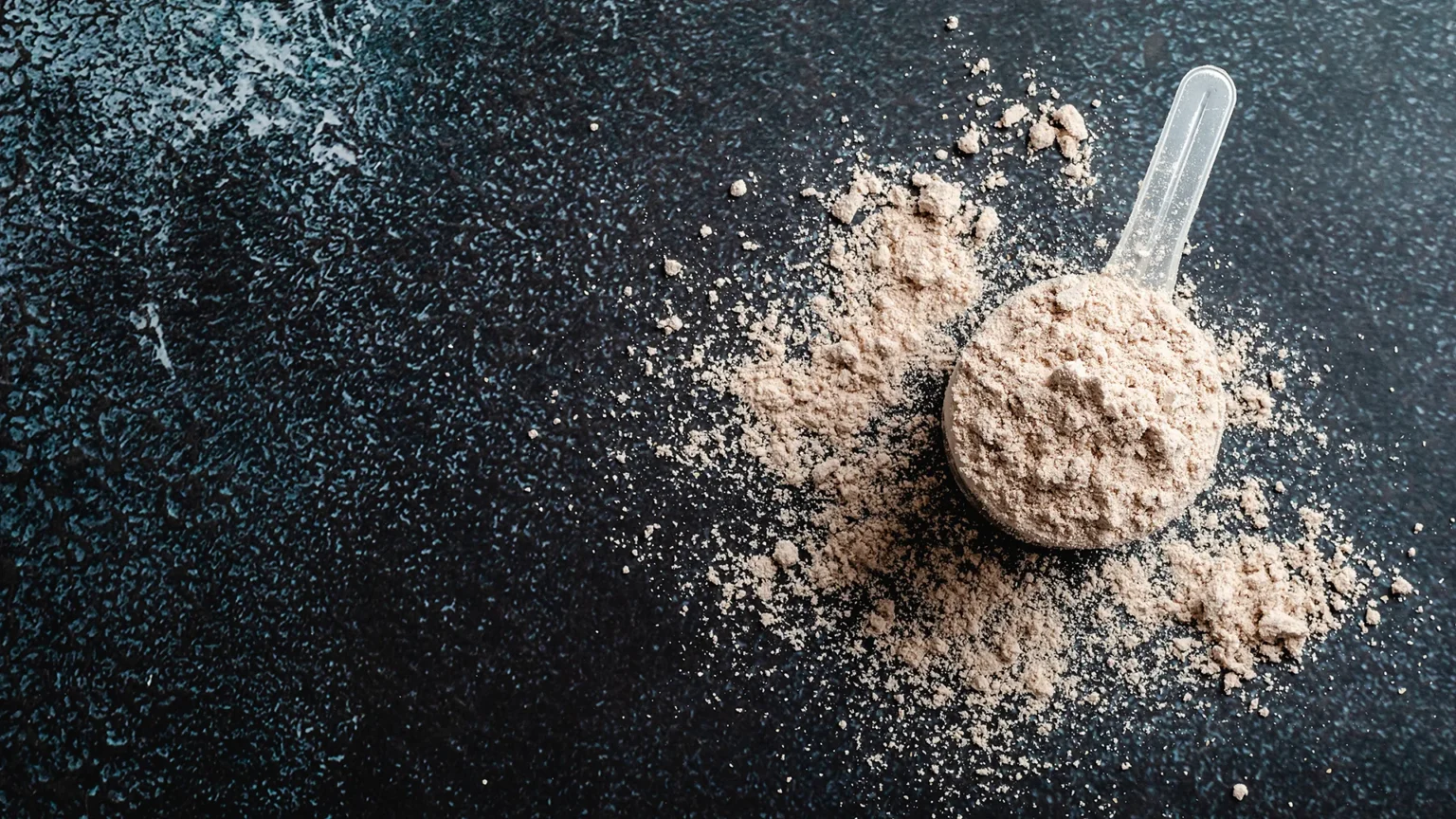If you’re like most fitness enthusiasts, gym-goers, or college students, you probably rely on protein powder as a staple in your daily diet. It’s quick, convenient, and effective for muscle recovery and hitting protein goals. But have you ever glanced at the tub sitting in your cupboard and wondered: “Can protein powder go bad?”
The short answer: yes, it can. But the story doesn’t end there. Not every tub that passes its expiration date instantly turns dangerous, though ignoring the signs of spoilage can lead to health risks and wasted money. In this article, we’ll break down whether protein powder expires, how to tell if yours has gone bad, and the best ways to store it for long-lasting freshness.
Does Protein Powder Expire?
Like all packaged foods, protein powder comes with a printed “best by” or expiration date. This doesn’t mean it magically becomes unsafe the next day, but rather that the manufacturer guarantees peak quality until then.
Shelf life of common protein powders:
- Whey protein: 9–18 months (unopened, stored properly)
- Casein protein: 12–18 months
- Plant-based protein (pea, hemp, soy, rice): 12–24 months, depending on added ingredients
- Protein blends with added probiotics, enzymes, or flavourings: usually shorter shelf lives
Factors that affect longevity:
- Exposure to heat and moisture
- Added fats, flavourings, and sugars (they spoil faster)
- Packaging quality (airtight vs. poorly sealed)
👉 Bottom line: protein powder does expire, but whether it’s “gone bad” depends on both storage conditions and time since production.
Signs Your Protein Powder Has Gone Bad
Not sure if your tub is still good to use? Here are the red flags to look out for:
1. Changes in Smell and Taste
A sour, bitter, or unusual smell is the first sign something’s off. Fresh protein powder should smell neutral or slightly sweet, depending on flavour.
2. Clumps and Texture Issues
If your scoop has hard clumps that don’t break apart easily, it may have absorbed moisture. Moisture = breeding ground for bacteria and mould.
3. Colour Changes or Visible Mould
Any discolouration or visible mould means it’s time to toss it immediately.
4. Digestive Discomfort After Use
If you feel bloated, nauseous, or experience stomach cramps after consuming it, your powder may have degraded or been contaminated.
Quick Checklist Before Using:
- ✅ Normal colour and smell
- ✅ Powder flows freely (not clumpy)
- ✅ Tastes as expected
- ❌ Any sour odour, mould, or hardened clumps → throw it away
Is Expired Protein Powder Safe to Use?
This is one of the most common questions: Is expired protein powder safe?
The answer depends on how expired it is and how it’s been stored.
- Slightly past expiry (a few months): Usually safe if it smells and looks fine. Nutritional value may be slightly lower, but it won’t harm you.
- Badly spoiled (rancid smell, clumpy texture, mould): Unsafe. Consuming it can cause food poisoning symptoms like nausea, diarrhoea, and stomach cramps.
- Heavily expired (1+ year past date): Nutritional loss makes it nearly useless for fitness goals, even if it doesn’t cause immediate illness.
👉 Featured Snippet Style Answer: Yes, protein powder can go bad. A little past expiration may only reduce its nutritional value, but if it smells, tastes, or looks off, it’s unsafe to use.
Protein Powder Nutrition Loss Over Time
One major concern is not just safety but also nutrition degradation.
- Protein content: Generally stable, but may slightly decline after long expiry.
- Added vitamins/minerals: More sensitive — degrade faster with time.
- Enzymes/probiotics: Usually die off well before expiry, making blends less effective.
- Fats in protein blends: More likely to go rancid, causing both taste and health issues.
If you’re using protein powder to support muscle growth, recovery, or fat loss, degraded powder won’t deliver the results you expect.
Best Way to Store Protein Powder for Maximum Freshness
Proper storage is the key to extending your protein powder’s shelf life.
Airtight Containers vs. Original Packaging
- Best: Keep it in the original packaging (designed to block light/moisture). Reseal tightly after every scoop.
- Better alternative: Transfer to an airtight container if original packaging is damaged.
Ideal Storage Conditions
- Store in a cool, dry place (pantry, cupboard).
- Avoid direct sunlight or heat (don’t keep it in your car or near the stove).
- Never use a wet scoop — moisture introduces bacteria.
Travel & College Tips
- For gym bags: use small airtight containers.
- Avoid single-serve plastic bags if you’re in hot/humid climates — they trap moisture.
📊 Good vs. Bad Storage Practices (Quick Table)
| Storage Practice | Effect on Powder | Shelf Life Impact |
|---|---|---|
| Airtight container, cool/dry place | Preserves freshness | ✅ Long shelf life |
| Left open or loosely sealed | Absorbs moisture, clumps | ❌ Spoils faster |
| Kept near heat/sunlight | Breaks down nutrients | ❌ Spoils faster |
| Scoop with wet hands | Introduces bacteria | ❌ Unsafe quickly |
Frequently Asked Questions (FAQ)
Does protein powder actually expire?
Yes, all protein powders expire. Shelf life varies, but most last 9–18 months if stored properly.
How long after expiry can I still use protein powder?
If kept in a cool, dry place and unopened, up to 3–6 months past the date may still be fine. Always check smell and texture.
What happens if I drink expired protein powder?
Slightly expired powder may just have less nutrition. Spoiled powder can cause stomach issues and food poisoning.
How do I know if my protein powder is still good?
Check for smell, taste, and clumping. If it’s normal, it’s usually safe. If in doubt, throw it out.
What’s the best way to make protein powder last longer?
Keep it airtight, dry, and away from heat. Never scoop with wet hands.
Conclusion – Should You Risk Using Expired Protein Powder?
So, can protein powder go bad? Absolutely. The good news is that if stored correctly, it usually lasts beyond its printed expiration date. The bad news is that ignoring signs of spoilage puts both your stomach and your fitness goals at risk.
When in doubt, don’t gamble with your health. Toss the expired tub and invest in a fresh supply. After all, muscle growth and recovery are built on quality nutrition, not spoiled supplements.








